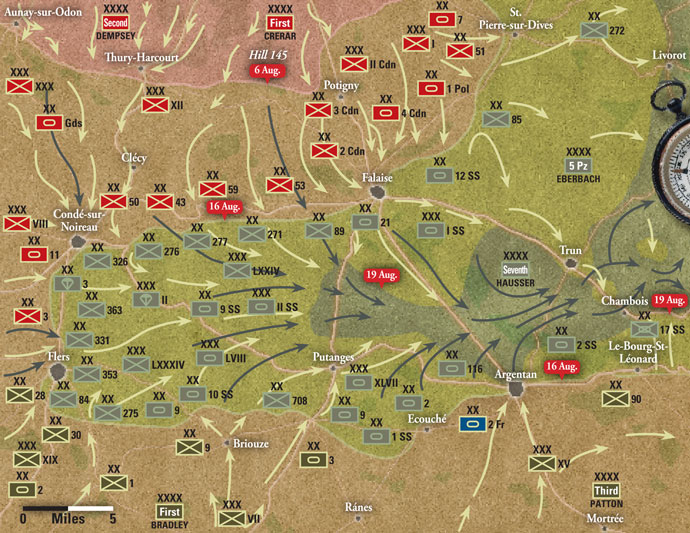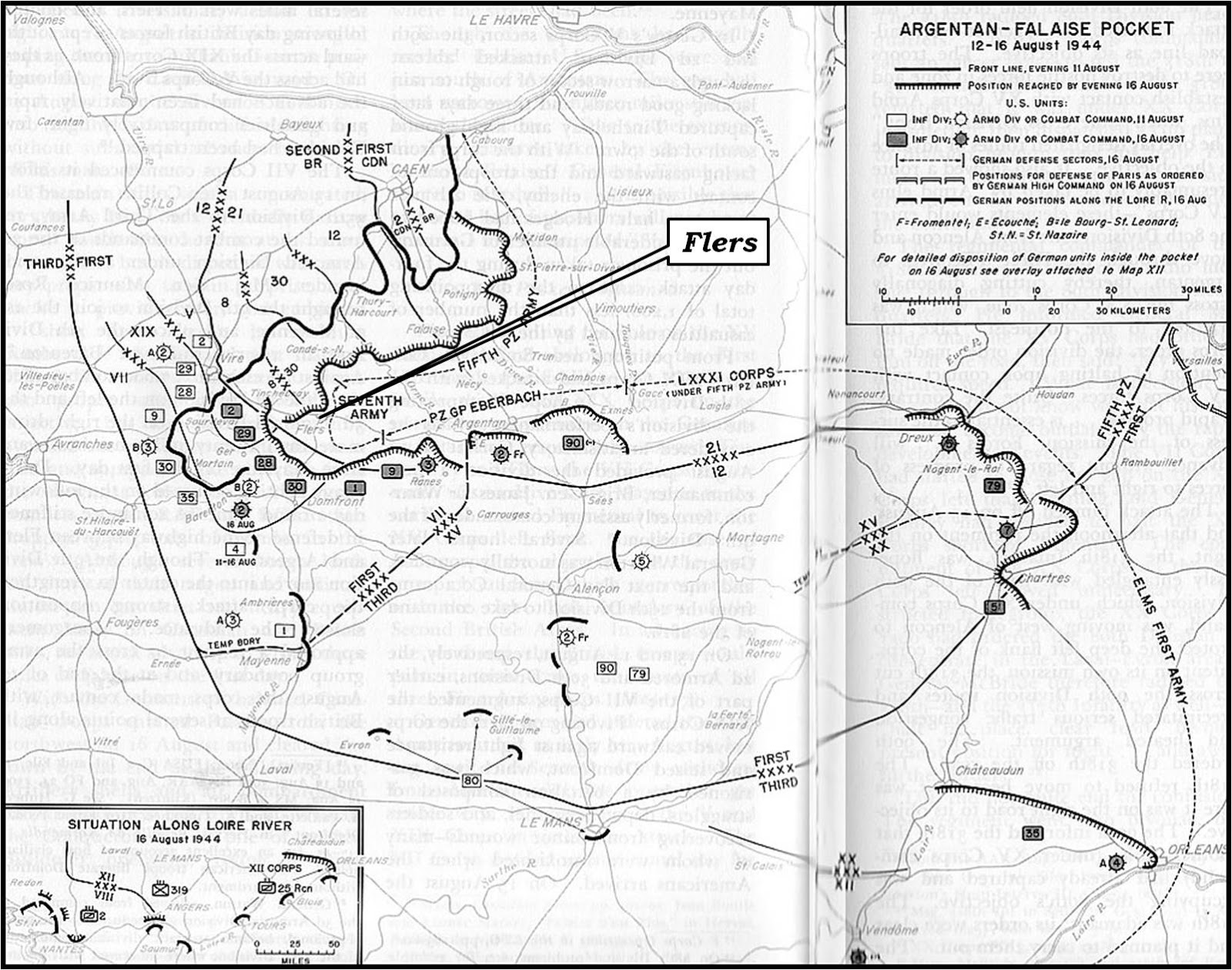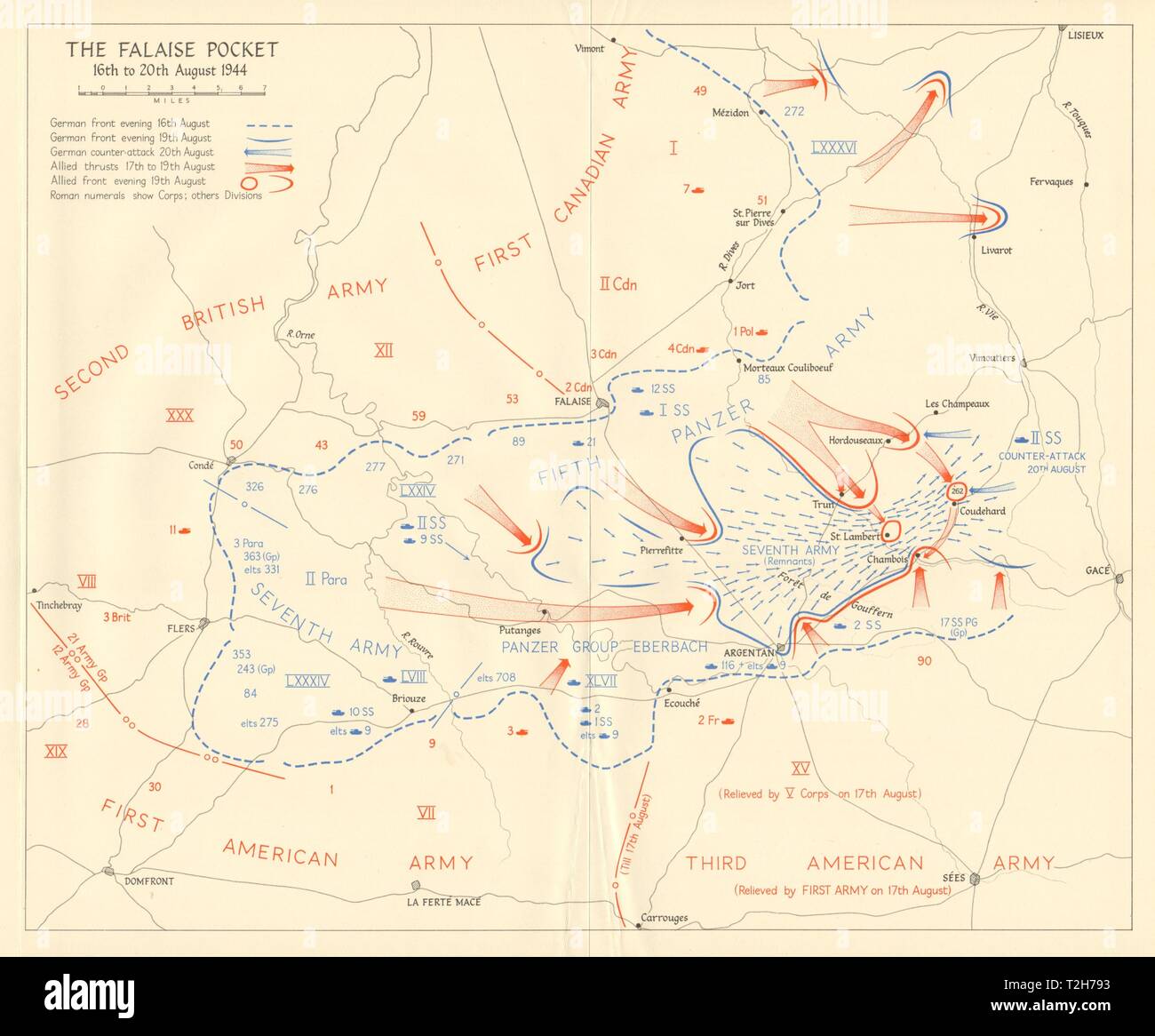sillygoose
Well-known member
As it says on the tin: what if Patton wasn't stopped and allowed to close the Falaise pocket so that virtually no German troops escaped?

 en.wikipedia.org
en.wikipedia.org
How much sooner could the war have been ended? It is estimated about 50,000 men escaped from the pocket IOTL. Including the II SS Panzer corps, which would have had profound impacts on Market Garden. Could the war have ended in 1944? Would Yalta have been radically different if the Wallies had managed to bounce the Rhine and cut off the 15th army, forcing its surrender in October?

Falaise pocket - Wikipedia
 en.wikipedia.org
en.wikipedia.org
The Third Army advance from the south made good progress on 12 August; Alençon was captured and Kluge was forced to commit troops he had been gathering for a counter-attack. The next day, the US 5th Armored Division of the US XV Corps advanced 35 mi (56 km) and reached positions overlooking Argentan.[41] On 13 August, Bradley over-ruled orders by Patton for a further push northwards towards Falaise by the 5th Armored Division.[41] Bradley instead ordered the XV Corps to "concentrate for operations in another direction".[42] The US troops near Argentan were ordered to withdraw, which ended the pincer movement by the XV Corps.[43] Patton objected but complied, which left an exit for the German forces in the Falaise pocket.[43][nb 5]
[nb5] Bradley later received much blame for "failing" to exploit the opportunity to envelop Army Group B.[41] General Hans Speidel, Chief of Staff of Army Group B, wrote that they would have been eliminated, if the 5th Armored Division had continued its advance to Falaise, although D'Este wrote that the order came from Montgomery.[43][44]
How much sooner could the war have been ended? It is estimated about 50,000 men escaped from the pocket IOTL. Including the II SS Panzer corps, which would have had profound impacts on Market Garden. Could the war have ended in 1944? Would Yalta have been radically different if the Wallies had managed to bounce the Rhine and cut off the 15th army, forcing its surrender in October?





